With a Little Help from Friends Across the Globe
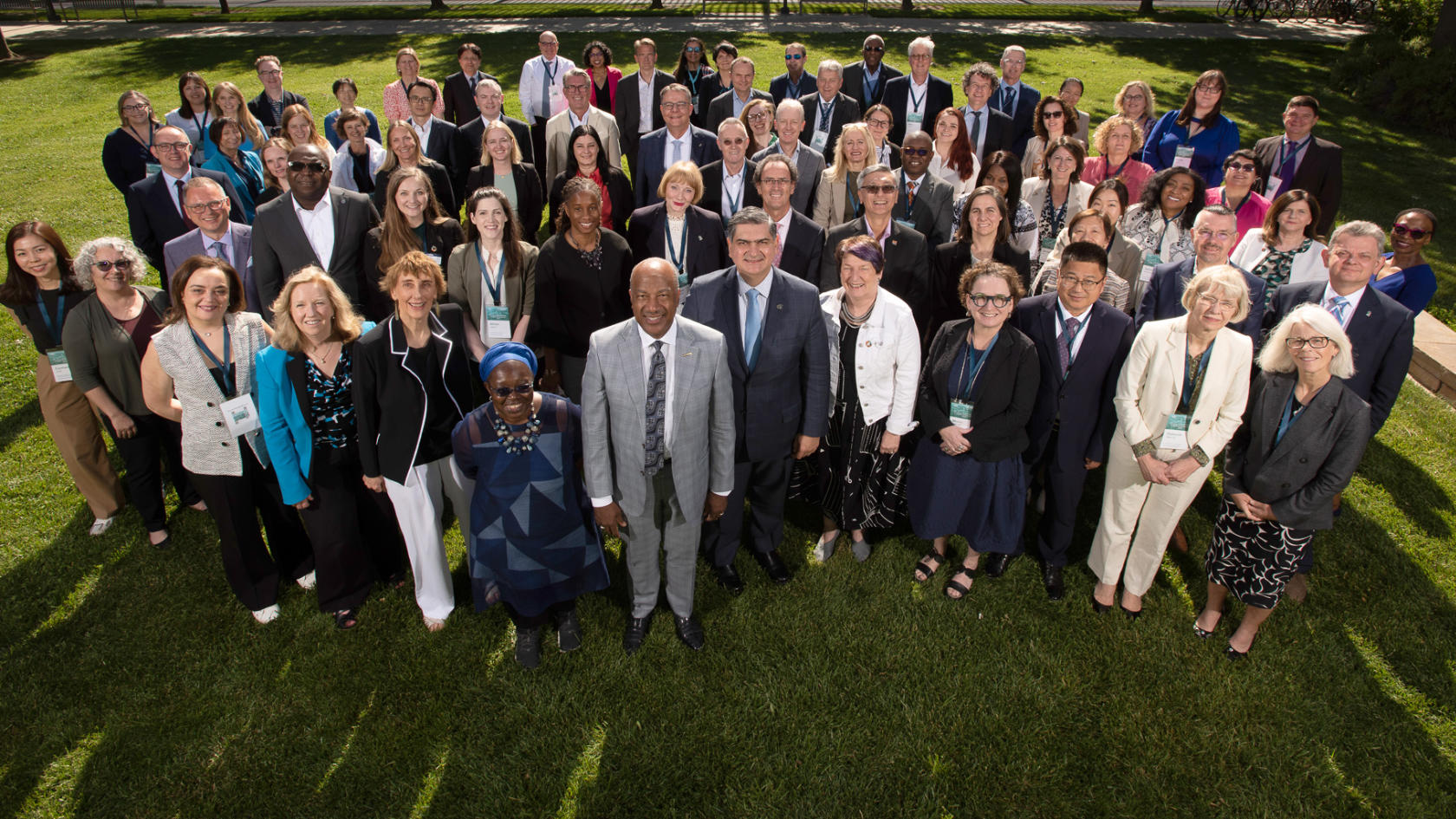
“I get by with a little help from my friends,” sang The Beatles in their catchy tune. The song taught us that supportive friends can help us weather rough times, set our sights high and find the strength to persevere. Universities, having come under increasing pressure worldwide, could also use a little help from their global peers. Universitas 21 (U21) is a network of 30 research-intensive and globally minded universities that provides such support through its firm commitment to academic freedom, basic research and internationalization in times of geopolitical uncertainty.
The University of Zurich (UZH) joined the global network in 2017 as its only Swiss member. Since then, UZH has benefited from additional international learning opportunities for its students, knowledge exchange on educational innovations, as well as joint research initiatives and peer-to-peer exchanges at different levels. Along the way, UZH also forged close bilateral relationships. This global perspective is a valuable addition to the focus of the other two networks that UZH participates in, the Leagues of European Research Universities (LERU) and the European university alliance Una Europa.
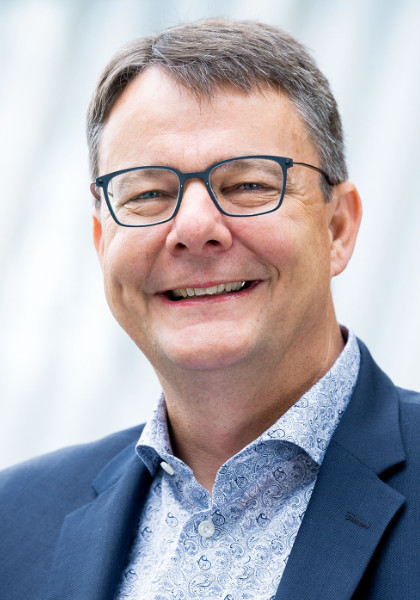
Through these networks in research, teaching and innovation, we can contribute to addressing societal challenges alongside the best minds worldwide.
In 2024, Michael Schaepman, president of UZH, joined the Executive Committee of U21. In this capacity, he has collaborated with his colleagues from Mexico, the US, the UK, Belgium, Singapore, China and New Zealand to help shape the network’s future strategy. “A university’s global engagement is reflected in its membership of renowned international networks such as U21,” he says. “Through these networks in research, teaching and innovation, we can contribute to addressing societal challenges alongside the best minds worldwide.”
Building bridges between Asia and the Americas
Good friends often share common ground, such as core values. Yet they also bring their unique perspectives and experiences to the table in a bid to broaden the shared outlook and find innovative, collaborative solutions. The same is true for U21 members. They are united in their mission of research, teaching and innovation, yet approach these endeavors from different international angles. In the U21 network, UZH contributes its Swiss perspective and values.
“We often find ourselves building bridges between Asia and the Americas,” explains Katja Durkin-Sommerhalder, head of the Global Affairs office at UZH. “We offer stability in a volatile environment, as well as a strong sense of pragmatism and inclusive engagement within and outside of U21.” This pragmatic approach is evident in the university’s Global Funding Scheme, which offers a simplified application process for international collaborative projects, e.g., with U21 partners. Eligible projects include, but are not limited to, research projects.
Valuable relationships outside of Europe
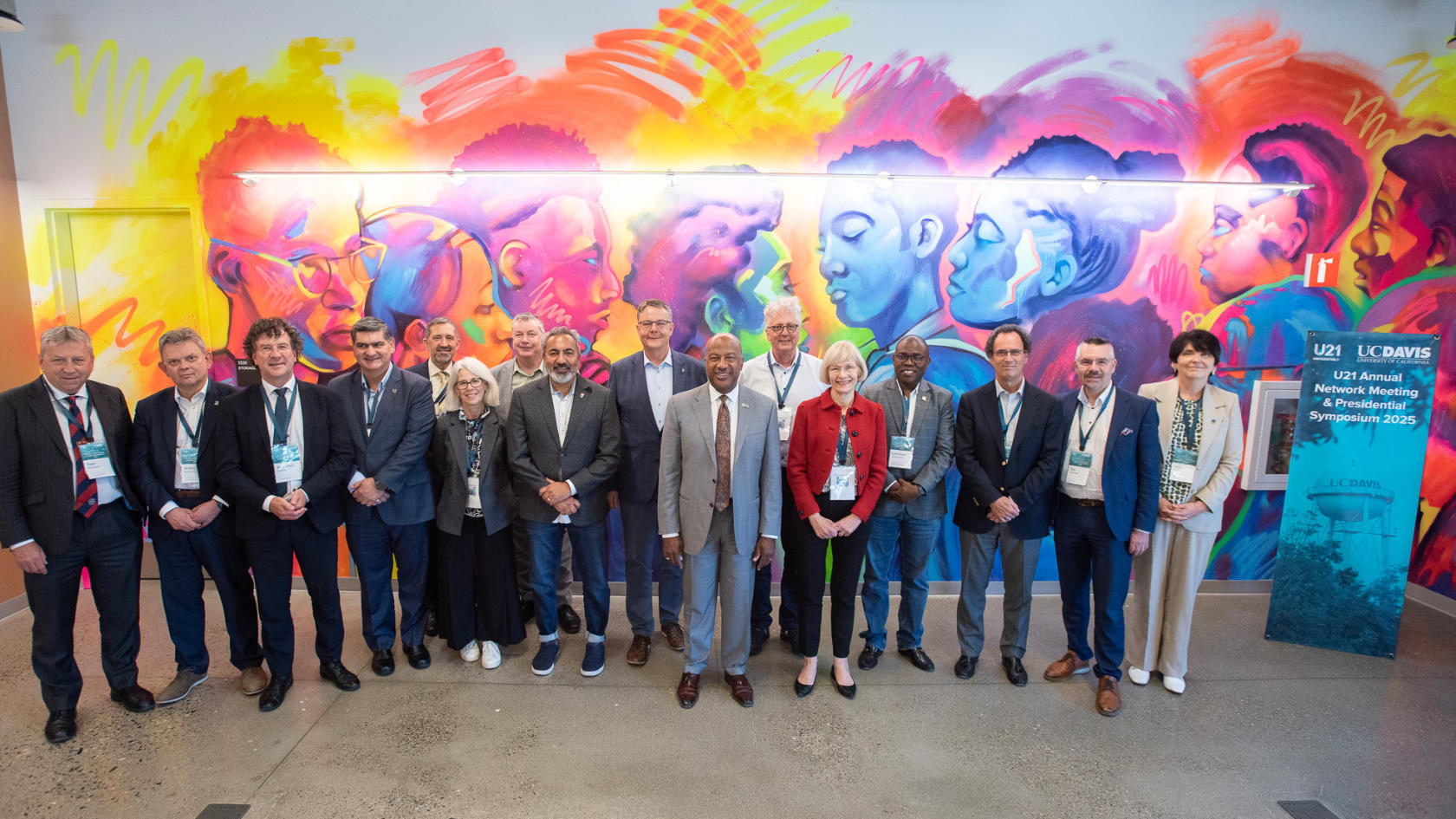
Friends also have each other’s backs. As Michael Schaepman points out, UZH has been able to count on its international partners. “In recent years, we have seen firsthand how crucial such networks are, particularly when a disagreement between Switzerland and the European Union over future cooperation severely impacted research collaboration, with Swiss universities being excluded from the European research network Horizon Europe.” Through the U21 network, UZH has built valuable relationships outside of Europe, resulting in close research collaboration with U21 partners and even a strategic partnership with the University of Queensland, Australia.
The international outlook for UZH students has also increased with U21’s global classroom initiatives and international exchanges through short study programs and summer schools. “U21 connects us on a deep level with like-minded universities outside of Europe, enables global and innovative international teaching formats and offers our students opportunities for an international experience,” says Leslie Reinhard, UZH’s U21 Officer at Global Affairs.
Strong commitment to EDI in challenging times
In the first week of May, university representatives from around the world gathered at the University of California, Davis (UC Davis) for the U21 Annual Network Meeting and Presidential Symposium to further strengthen this connection. Together, they explored ways to foster a more just, sustainable and resilient world through research, education and public service. The meeting’s main focus was to galvanize a meaningful global conversation about equity, diversity and inclusion (EDI), one of the network’s five collaborative areas.
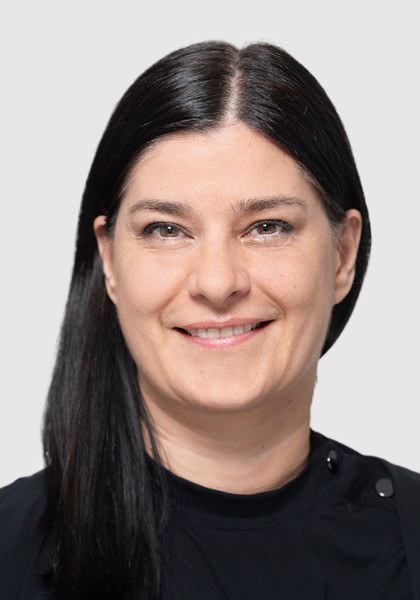
By highlighting the importance of EDI throughout the meeting, a US university demonstrated that it is possible to foster an environment in which polarized topics can be discussed freely.
Katja Durkin-Sommerhalder participated in the meeting at UC Davis as a U21 Senior Leader: “In the current geopolitical situation, personal exchanges with universities around the world – including the four universities based in the US – are absolutely necessary to maintain the high level of trust that we have built with the U21 universities over the last decade,” she says. “It’s remarkable that by highlighting the importance of EDI throughout the meeting, a US university demonstrated that it is possible to foster an environment in which polarized topics can be discussed freely.”
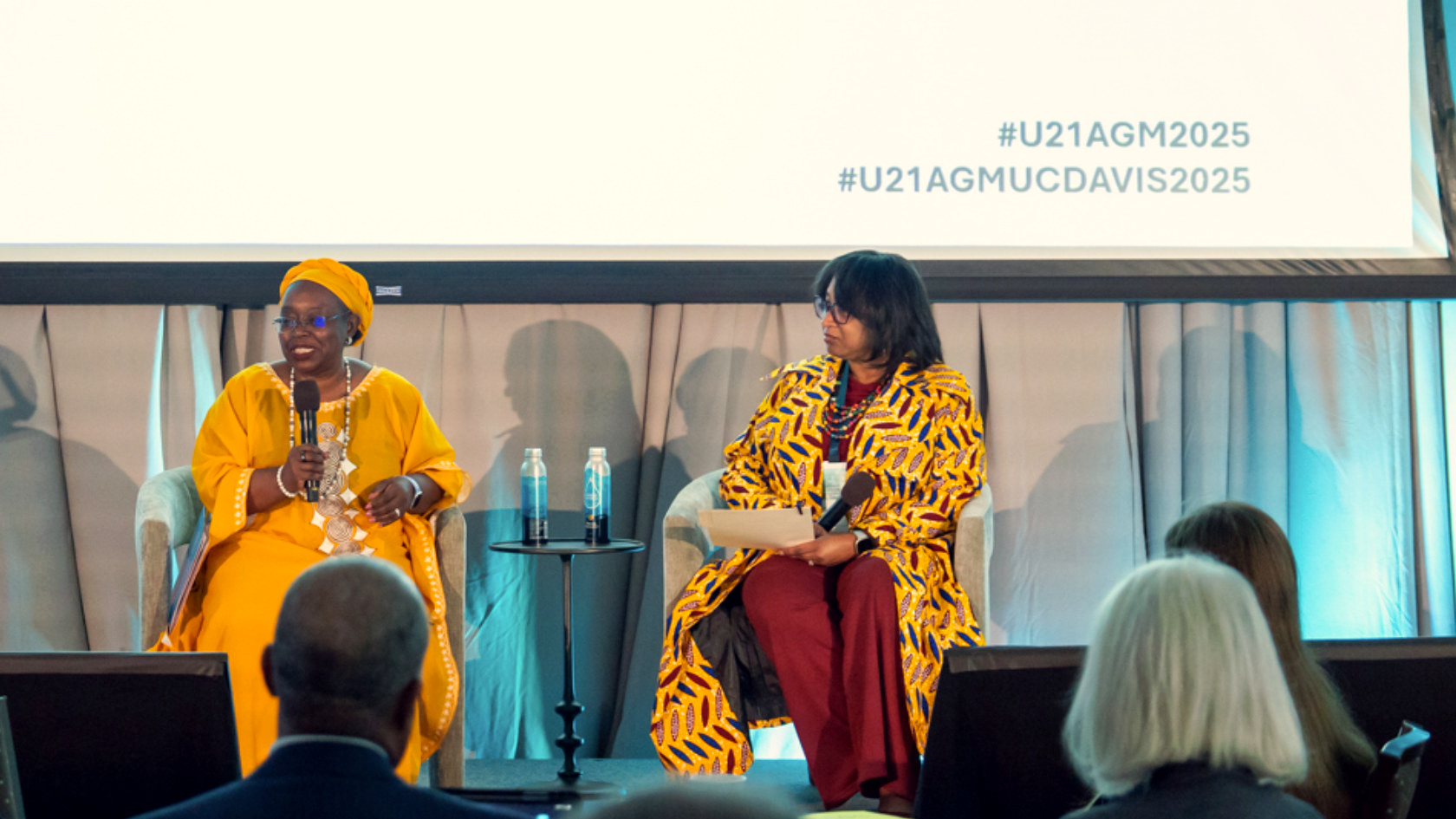
Keynote speaker Fanta Aw, the CEO of the Association of International Educators (NAFSA) challenged university leaders to reflect on their own role in creating accessible and equitable learning environments. She reminded them of their responsibility and asked: “Are we as universities listening as much as we are lecturing? Global knowledge systems are defined by inequalities and universities have the power and moral obligation to change that.”
Common ground, similar challenges
In light of the complex issues that the current geopolitical situation is creating for higher education around the world, the meeting affirmed common ground. “Many of us are grappling with similar challenges, such as funding cuts or restrictions on academic freedom. Academic freedom is under pressure, globally,” says Leslie Reinhard, who participated in peer-to-peer exchanges with other U21 officers. “We also share a core mission: to transform the lives of young people and equip them with the tools necessary to navigate an increasingly global future, with all its challenges and opportunities, such as AI literacy or the impact of climate change.”
Michael Schaepman treasured the exchange among presidents and internationalization professionals during the annual meeting: “Participating in U21 meetings with other university leaders from across the globe provides us with actionable insight for our own international strategy.”
After three days of intense discussions and inspiring talks at UC Davis, Katja Durkin-Sommerhalder shared her UZH colleagues’ positive appraisal: “The Annual Network Meeting has once again demonstrated our partner universities’ commitment to sticking together and weathering the current challenges collaboratively.” This underscores how, with a little help from their friends, universities can continue to act as catalysts for equity and inclusion, thereby enhancing academic freedom and excellence.